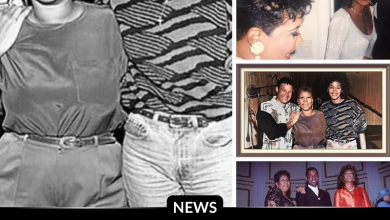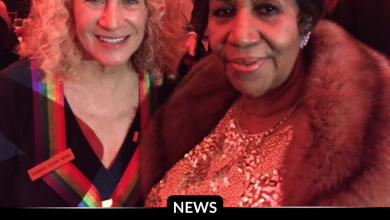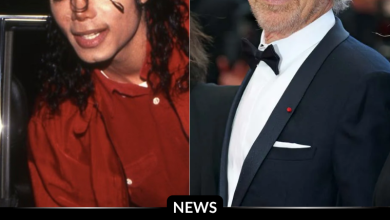“Don’t Lose Your Privacy” — Diana Ross’s Six-Word Warning That Guided Michael Jackson for 30 Years
OPINION: This article may contain commentary which reflects the author's opinion.
Long before Thriller, the moonwalk, and the dazzling reign of the “King of Pop,” there was a young boy standing backstage on The Ed Sullivan Show, hearing a sentence that would follow him for the rest of his life.
It came from Diana Ross — mentor, friend, and the woman who first introduced The Jackson 5 to the world. Her advice to 12-year-old Michael Jackson was simple, profound, and prophetic:
“Don’t lose your privacy, Michael. Ever.”
The Moment That Changed Everything
It was 1970, and The Jackson 5 had just delivered their breakout performance of “I Want You Back.” Amid the chaos of flashing cameras and eager reporters, Ross pulled the young star aside and spoke softly — not as a celebrity, but as someone who had already lived the pressures of fame.
“She could already see how big it was going to get,” recalled Michael’s brother Jackie Jackson. “She told him, ‘The lights never turn off once they find you. You have to protect one part of yourself — or you’ll disappear.’”
From that moment on, Ross’s six words became Michael’s mantra — a quiet defense against a life that would only grow more public, more demanding, and more complicated.
The Private World of the King of Pop
Those who knew Michael best say Ross’s warning shaped how he handled fame. Beneath the spectacle, he built boundaries — carefully preserving a private side of himself few ever saw.
“He built walls around his privacy because she told him to,” said legendary producer Quincy Jones. “He understood that his gift belonged to the world, but his peace didn’t.”
Even at the peak of his fame, Jackson would refer to Ross’s advice in interviews. In one 1984 radio appearance, he said:
“Diana told me not to let the world have all of me. I try to keep something that’s mine.”
That “something” became his hidden sanctuary — moments spent drawing, reading, or caring for animals at Neverland Ranch. Friends said those private routines weren’t just hobbies; they were survival.
A Bond Beyond Music
Ross remained a guiding presence throughout Jackson’s life. She wasn’t just a mentor — she was, in his words, “like a second mother.” When fame and scrutiny became overwhelming, he turned to her letters and advice.
One note she sent in 1989 read:
“Don’t let them tell you who you are, Michael. You already know.”
Their connection endured for decades, built on trust, artistry, and a shared understanding of what it meant to live under constant attention.
When Jackson passed away in 2009, Ross’s tribute was brief but deeply personal:
“Michael was like a son to me. I pray he finally found the privacy he was always searching for.”
A Prophecy Fulfilled
For Jackson, “Don’t lose your privacy” became both a shield and a lifelong struggle. He protected his inner world as fiercely as he performed on stage, trying to preserve the human being behind the legend.
“She wasn’t warning him about fame,” said choreographer Kenny Ortega, who worked closely with Jackson during his final years. “She was warning him about losing himself. And for 30 years, he tried not to.”
In the end, those six words from Diana Ross — whispered backstage to a boy with a dream — became one of pop culture’s most haunting lessons.
A reminder that even for the brightest stars, the greatest fight is often not for fame — but for the small, sacred space that still belongs only to them.



